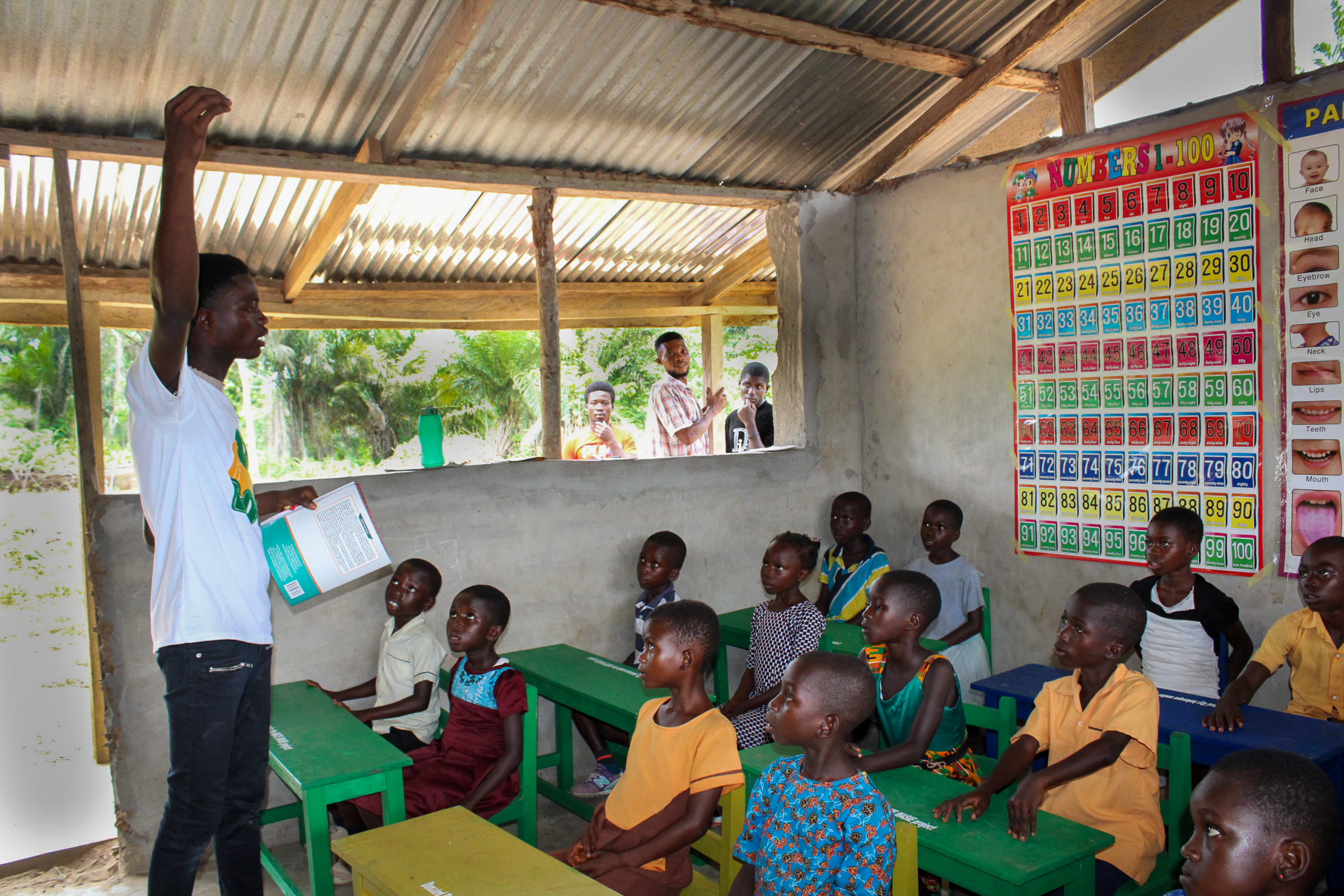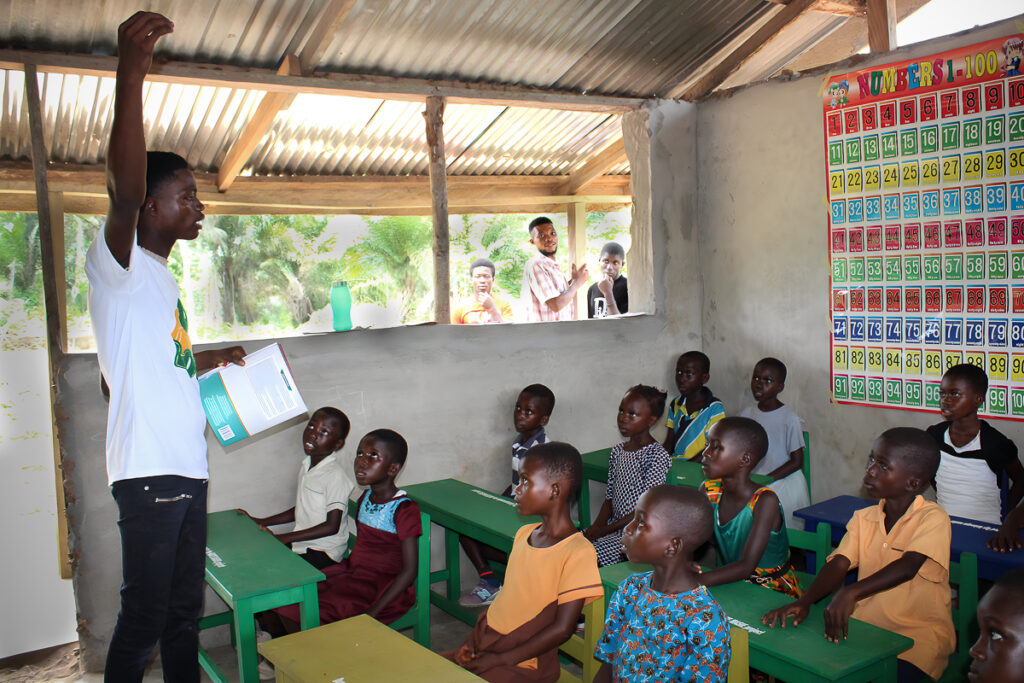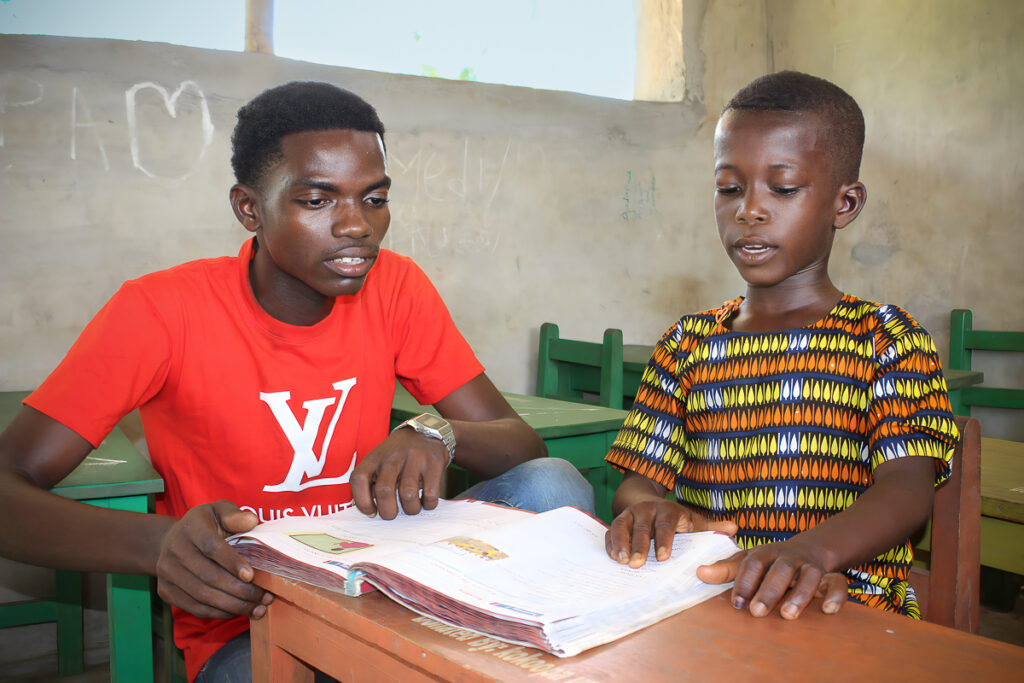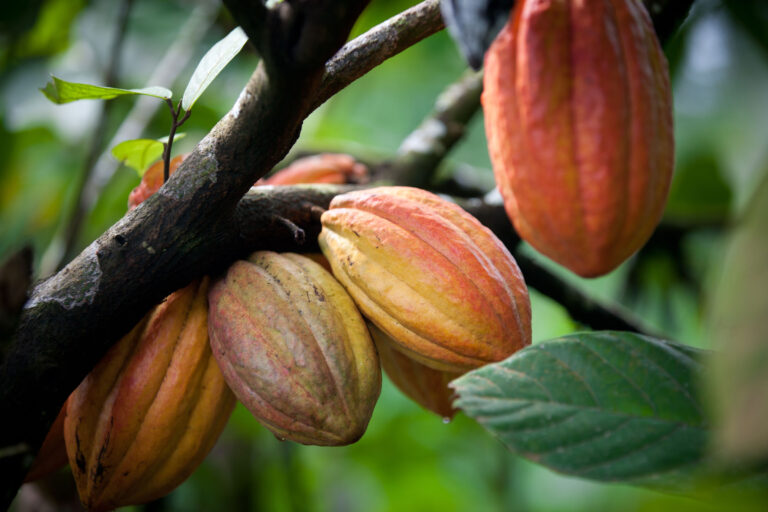
A community’s effort to educate its children
Achieving Sustainable Development Goal 4, which focuses on inclusive and equitable quality education, is a challenge, as approximately 57 million primary school-aged children remain out of school, most of them in sub-Saharan Africa. Among them were 35 kindergarten-aged children in Essonkrom, Ghana, until their parents and other community members, with support from the U.S. Department of Labor-funded MATE MASIE project intervened to improve the situation.
In Essonkrom, a cocoa-growing community in southern Ghana, children walked three kilometers to reach the nearest school. This demanding trek — made worse during the rainy season — often led to fatigue and hunger upon reaching school. Absenteeism and dropout rates are high, and many children cite the long distance as an excuse to stay home which puts them at risk of engaging in child labor.
Essonkrom was selected as a MATE MASIE project community in 2022. Among the community’s cocoa farmers are members of Kokoo Pa cooperative, a Winrock partner on the project. During the community entry and selection process, representatives from Essonkrom said having a kindergarten in the community was a key priority. By January 2023, they made this a reality, establishing a kindergarten in a three-room structure that community members had built with partner support.

MATE MASIE and the community have since worked together to ensure that the kindergarten is child-friendly and conducive to learning. Since the school opened, all kindergarten-aged children in the community have been enrolled. In May, Kokoo Pa, through MATE MASIE, supported the school with a set of teaching and learning materials, including textbooks, pencils, crayons, flashcards, posters, slates, building blocks and furniture (44 chairs and 14 tables).
Two community members, Eric and Elizabeth, now serve as volunteer teachers at the kindergarten. Eric’s commitment stems from his own experience of having to walk six kilometers to school each day.
“The children in the community have developed a love for learning that was previously non-existent,” Eric said. “You can hear them running around the community reciting the alphabet and the numbers.”
Eric added, “The teaching and learning materials we received from Kokoo Pa have made learning very practical. The children here can relate to what they are learning because they can see and touch samples of it. Bernard [a student] could not identify the numbers when he first got here, but he can do so now. In the morning, he is one of the first to get to school.”
Kwame, an 8-year-old student at the school, spoke about the benefits of having a school in his community. “I had to wake up early so I could get to school by 8 a.m.,” Kwame said. “I would be tired after the long walk and I frequently experienced pains in my legs…Having access to a school in my community is great for me. I just walk a short distance from my house to get to my school. I have better concentration because I do not get exhausted before class starts.”

In June, as part of the commemoration of World Day Against Child Labor, Essonkrom students acted in a play at the district durbar (meeting with traditional leaders). Kwame was selected to play the part of a farmer who engaged his children in child labor rather than sending them to school.
“I was happy and proud to have had that opportunity,” Kwame said. “This would not have been possible at my former school…It felt great because my parents were there to cheer me on.”
The impact of the Essonkrom school stretches outside the community as well. Solomon, a boy from a nearby hamlet, could not read or write. He is now literate and thriving at the school.
The community is keen on monitoring the progress of the school’s development. They have set up a school management committee and instituted other sustainability measures.
“We have put in place a monthly 10 cedi (about $1 U.S. dollar) levy for every household to support the development of the school and started a Friday feeding program. For this, each child in the school pays 0.50 pesewas (less than 1 U.S. cent) weekly,” Mohammed, a community leader, explained.
Starting a kindergarten in Essonkrom may not be the full solution to the community’s educational challenges, but it is fostering a love of learning while preparing students for academic success.
Funding is provided by the United States Department of Labor under cooperative agreement number IL-35537-20-75-K. One hundred percent of the total costs of the project are financed with USG federal funds for a total of $4,000,000 dollars. This material does not necessarily reflect the views or policies of the United States Department of Labor, nor does mention of trade names, commercial products, or organizations imply endorsement by the United States Government.
Related Projects

